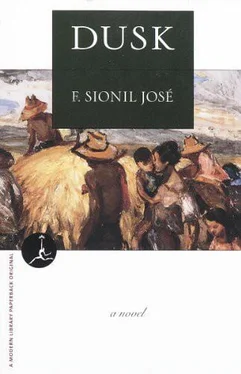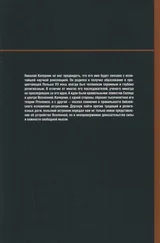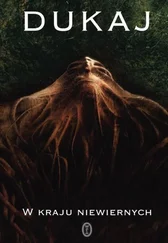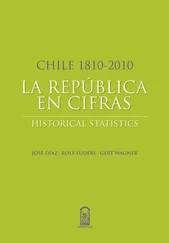The guava tree had borne fruit and the well was full and flowing ceaselessly into the bamboo conduits that carried the gift of life to the seed. He would bring some of the fruits to his patient and boil some of the young leaves in water from the well. Mushrooms had also sprouted in the pit where he had stacked the dead trunks of bananas and hay, and he filled his fish basket with them. The Cripple would like a tasty meal even if there was no salt in it.
He had never taken care of anyone before with whom he was as involved as he was now. Although it had given him immense satisfaction to hear the Cripple tell of his improvement, Istak was not sure that he was doing right, he was not even sure that the Cripple’s old ailment was completely cured. It was in moments like this that uncertainty badgered him, that the hunger for more knowledge became more acute.
Would he raise his sons, for instance, the way he was — full of questions? This early, the older boy, Antonio, had already shown intelligence and a questioning spirit. He had taught the boy the cartilla and he could read just enough Spanish for a nine-year-old to absorb. Istak regretted most that he had no books here; in Cabugaw, there had been the Augustinian texts, the literature and science of Europe. Now that he had shared the rich man’s food, perhaps, Don Jacinto could lend him some of his books.
All this was in his mind the evening he returned to town with his medications. This time, however, the Cripple did not bother him with questions; he offered Istak a job instead.
In the azotea again. Across the wide expanse of grass the balete tree was ignited by a thousand fireflies, and beyond the old tree, the orange lights of several homes flickered. The evening was cool; it would be December soon and the bracing winds from the mountains would veer down to the plain.
The Cripple had finished his supper. He had also drunk the concoction which Istak had brought in a bamboo tube but that was now in a glass pitcher. The Aladdin lamp was lighted and its luminous glow reached out to them.
The Cripple was pensive, his eyes on the far distance, the pith of darkness. “I have difficult days ahead, Eustaquio. I am depressed by the way the war is being fought, and now, all these personal problems, too. As you very well know, Cayo, my secretary, is not well. He is in Balungaw with my servant, in the hot springs there, recuperating from this fever and I don’t know how long he will be there. Thank God, it is not the pox. I need someone to transcribe what I have written, to remember the things that I say. Your Spanish is polished — as if you grew up with the language. Do you have difficulty recalling it?”
“Yes, Apo,” Istak said.
“You will do. And as for Tagalog, it Does not matter that you don’t speak it. You can learn enough so that you will understand what I automatically say sometimes.”
This kind of work was beyond his expectations. He should forget the dream but in his heart he was glad that the Cripple saw value in him still. But what was this votive flame that was drawing him closer to this cause that led men to their graves? Would he eventually be singed by it, would it scorch all the allegiances of the blood?
“What are your feelings toward the language of our masters, which we have learned? Does it give you a sense of pride? Of being equal to them?” the Cripple suddenly asked.
It had never occurred to him this way. Language was a window through which he could see — as Padre Jose had said, and indeed, he saw so much, learned so much. But how was he to explain this now? He turned to the side of the room where the bookshelves were. All those books were in Spanish, and perhaps, a couple or so in Ilokano.
“I have made their language mine, Apo,” Istak said finally. “And with it, I am able to speak with you, to Don Jacinto — but to my relatives, my wife, I have to speak in my own tongue, which I love no less.”
The Cripple smiled, that cryptic smile that could be mistaken for cynicism. “And I have to write in Spanish, and this then will have to be translated into English by our friends in Hong Kong. English, the language of our enemy — so that it can then be spread to many corners of the earth. To reach our own people, we have to use the language of foreigners. But someday we will be able to talk with everyone in a language that is our own. Yes, Eustaquio — there is so much the world does not know, how the Americans have tortured our people, committed the most brutal crimes against humanity. And yet, read their own constitution — how civilized and humanitarian it is. Yes, we have so much to tell everyone.”
The Cripple paused as if a heavy cloak of weariness had descended upon him. “And Luna is dead. Only he really understood how the war should be fought by men lacking arms but not spirit. Everyone can help in this war, Eustaquio. Do you understand?”
Istak bowed. “I am just a poor farmer, Apo.” His voice did not rise above a whisper.
Perhaps, had the Cripple been able to, he would have risen quickly. He jolted himself upright, instead, his voice leaping, his eyes burning: “You are not a poor farmer! You are Eustaquio Samson — is that not your name? And you are a Filipino with a good head — this I recognize as you should recognize it, too. And this is what has always been wrong with us — yes, the Spaniards have succeeded in humiliating us, always they are the superior teachers — we the inferior pupils! Whatever we do that is honest and good, we must be proud of it. We must not be subservient to anyone, not you to me, as I have never been to anyone. In me, in you — in all of us is dignity. We should stand bravely because we are citizens of a sovereign nation no matter how weak that nation. We are Filipinos now, do you understand, Eustaquio?”
Istak did not move. The words swirled around him, engulfed him, lifted him off his feet. No one had ever spoken to him like this before; his parents had always stressed obedience, hard work, and Padre Jose — for all his goodness, what did he din into him but piety, love, respect, duty — how they differed from Mabini’s thralling call to pride.
“Yes, Apo,” Istak said.
“You do not know it,” the Cripple continued equably. “I am no longer an official in our government. What I do now I do as a duty, not to the president but to Filipinas. Our motherland, she is bigger than any of us, and we must serve her, and serving her means serving you and everyone who is Filipino. Even now, President Aguinaldo is fleeing from the Americans, just as I am hiding here, unable to run. He has a weak, undisciplined army — what is left of it — led by General Tinio. He will be safe. But the Americans will surely capture me — I don’t know when they will come or when I will be betrayed, just as I don’t know when they will catch up with the president. Some say that everything is lost, that all we can do now is run and hide, but we can still wage war from the mountains, from the swamps, where they cannot reach us. We know the folds of the hills, the depths of the muck — they don’t. But even if the war is lost, even if there is an American pointing a gun at each one of us, we must continue to oppose this new master till Filipinas is free.”
A long pause, then the Cripple continued sadly: “But when will Filipinas ever be free from its leaders who are wealthy and crooked, in whom we have put so much trust?”
To Istak’s questioning look, the man sighed. “I am voicing thoughts that I should keep to myself. But I have always mistrusted the wealthy men who have joined the revolution. I know that great wealth is always accumulated by foul means, by exploiting other people. If we have wealthy men at the helm, we can be sure that they will enrich themselves further. Virtue and wealth seldom go together. The greatest criminals are also the wealthiest men.”
Читать дальше












